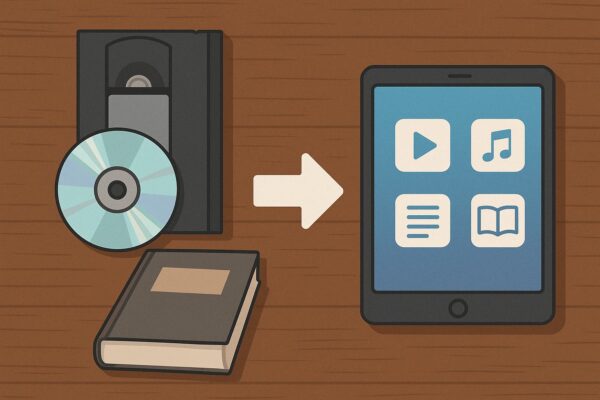When I was a teenager, buying a new game was a full-on event. I’d head to Look & Listen or Musica (RIP), browse the shelves, carefully pick a game, and carry that disc home like it was treasure.

I’d open the case, inhale that plasticky smell, you know the one, and admire the artwork and manual before even switching on the console.
Today? You click “Buy Now”, and five minutes later the game is on your console or PC. No case. No disc. No ceremony. And for a lot of people, that’s totally fine.
But here’s the thing: when you buy a game digitally, you don’t actually own it. You’re technically paying for permission to access it – until the publisher, platform, or server decides otherwise.
Steam’s Subscriber Agreement was updated in late 2024 to clear up digital game ownership. In it, Valve states: “The Content and Services are licensed, not sold. Your license confers no title or ownership in the Content and Services.”
This means when you “buy” a game on Steam, you’re not purchasing the game itself – you’re buying a limited, revocable license to use it. Steam retains full ownership and control over the content, and they can, in theory, revoke your access under certain conditions (e.g. terms violations, region restrictions, discontinued support).
This shift says a lot about how our relationship with technology, value, and ownership is changing.
Ownership is dead
You’d think digital games would be cheaper, right? No packaging, no printing, no shipping. But somehow, the price tag is often exactly the same – or even more expensive, thanks to the quirks of regional pricing on platforms like the PlayStation Store.
And still, people choose digital. Because it’s fast. It’s easy. It doesn’t take up shelf space or require you to get off the couch.
This mindset goes beyond gaming. We stream music instead of buying albums. We binge shows on Netflix instead of collecting box sets. Even tools and software – once sold on discs or once-off licenses – are now monthly subscriptions. Everything’s in the cloud. Everything’s rented.
Younger generations, like Gen-Z and Gen-Alpha don’t seem phased by this. Many grew up in a world where Spotify replaced CDs and Netflix replaced DVDs. The idea of “owning” content feels outdated. Access is the new norm, and when you’re juggling 100 things, instant convenience is hard to resist.
But what happens when it disappears?
Remember when Scott Pilgrim vs. The World: The Game got pulled from digital stores and fans couldn’t buy it for years? Or when movies you were halfway through on Netflix just vanished overnight?
Now imagine paying R1,200 for a game and waking up one day to find it gone. Maybe the company went bust. Maybe the servers shut down. Maybe you violated some obscure clause in the terms of service. Whatever the reason, you simply don’t ‘own’ the game anymore.
In South Africa, where connectivity can be unpredictable and data isn’t cheap, it’s even more frustrating. A big game download can chew through your cap in a single night, only for it to stop working because the platform decides to delist it or revoke access. Meanwhile, that same game on disc will still run on your old console for years – no internet required.
It’s a generational thing
Millennials and Gen Xers still remember the joy of physical media. Whether it was a game, CD, or a perfectly alphabetised DVD collection, owning something meant something. You could lend it out, resell it, or keep it forever (or at least until it got scratched).
For Gen Z and Gen Alpha, it’s the opposite. They’ve been raised in a world where everything is on-demand, everywhere, all the time. To them, physical media seems bulky and inconvenient. Why have shelves when you’ve got cloud storage? We’re giving up a lot of control in exchange for that convenience. And nobody really talks about it until it’s too late
In some ways, South Africa is still catching up to global digital trends. Physical games still sell here, especially at big retailers and during festive season promotions. But make no mistake: the shift is happening. Game Pass, digital downloads, and cloud-based everything are rapidly becoming the norm.
So, the question isn’t whether digital is the future, it is. The question is: are we okay with what we’re giving up for the sake of convenience?
When you don’t truly own your games, your music, or your favourite shows, you’re at the mercy of someone else’s business model. None of us know how long that will last. I remember when ownership used to be empowering and now that’s been replaced with instant gratification and convenience.
Marcé Heath
Related posts
ABOUT

Recharged is an independent site that focuses on technology, electric vehicles, and the digital life by Nafisa Akabor. Drawing from her 18-year tech journalism career, expect news, reviews, how-tos, comparisons, and practical uses of tech that are easy to digest. info@recharged.co.za





